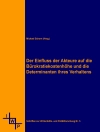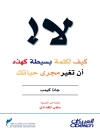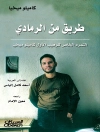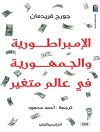In different societies, different models of crisis management are used to deal with the crisis, which is completely influenced by the political system that governs these societies. With the widespread prevalence of the Corona virus, different views have been propounded about the capabilities of different political systems, which are still the subject of debates. The fundamental question that has been raised and examined in this context is how the crisis management in authoritarian socialist countries can be evaluated in comparison with liberal countries? The present research is a descriptive-analytical and the mentioned question has been investigated using the library method. The results of the study indicate that it is not simply possible to distinguish between crisis management of democratic states and authoritarian regimes. Liberal democracies, however, mainly try to use a community-based approach to deal with crises. These systems try to manage crises while paying attention to economic well-being and respecting citizens’ rights, but the widespread outbreak of Corona has shown that in many cases liberal democracies have not acted fairly and the working classes are still forced to work in order to turn the wheel of their countries’ economy. Of course, the socialist approach of these governments in supporting different classes of people is worth considering. In general, liberal democracies have not been as successful as they should have been in dealing with the Corona virus crisis. On the other hand, although authoritarian socialist regimes such as China were able to control the crisis of the Corona outbreak, they still have been criticized for lack of respect for individual rights, absence of strong protectionist policies, and police actions. However, European liberal democracies, including Italy, France and Spain, have chosen the difficult solution of global quarantine like the world’s largest authoritarian powers, such as China, that puts it to action.
关于作者
Born on the 28th of January, 1996, in a family that loves art, literature and history. Ellias soon found his taste in literature and especially poetry. He wrote his first limerick when he was 12 years old.
Later on, when he was 14, books like ‘the peace book’ by Todd Parr, ‘let there be peace on earth: and let it begin with me’ by Jill Jackson and Sy Miller, and ‘What does peace feel like?’ by Vladimir Radunsky helped him to get familiar with the essence of peace. Reading poems by Calude Mckay, Wendell Berry and Robert Frost at that age inspired him to start writing poems in a more serious way. Sonnets of Shakespeare were also good sources of inspiration for him. So when he was 16, Ellias wrote a book called ‘International Poems Collection’. The book got the first provincial place in the most famous competition of inventions in Iran, ‘Kharazmi’, and the fifth place in the country competition, yet to be the only project of its kind. This book received confirmations from the University of Isfahan and now is being preserved in the ministry of science and research and technology.
The next year, Ellias with the cooperation of two hardworking and creative friends (Hosein Heidari and Hooman Danesh), wrote another poetry book called ‘A Path to Salvation’. This book also won Kharazmi awards. His Excellency, Dr. Zarif, wrote a thanks letter for Ellias for the book since it includes some nice and extraordinary elements of literature, humanity, peace and international relations.
In 2015, he was the only Asian representative in the second anniversary of Mandela, in Johannesburg, and it was after this event that he published the book ‘Peace Poems’ which was confirmed by the archive center of the aforementioned institute. Before his trip, during a personal meeting with the South Africa minister of art and culture, his projects were praised and he was given the Robben Island Treasure-icon in advance. Returned to Iran, he was invited to give a lecture on the Mandela and their project in the United Nation, Iranian Branch in Tehran with the presence of the Iranian minister of art and culture and other officials.
Later on, he and Paul Amrod collaborated on the longest modern epic in the history of English literature called ‘Adventures of two captains, volume one’. The book has been published by the most credible publishing house in Iran named Janagl Javidan. They are currently working on the second volume and even write an opera based on the series.












